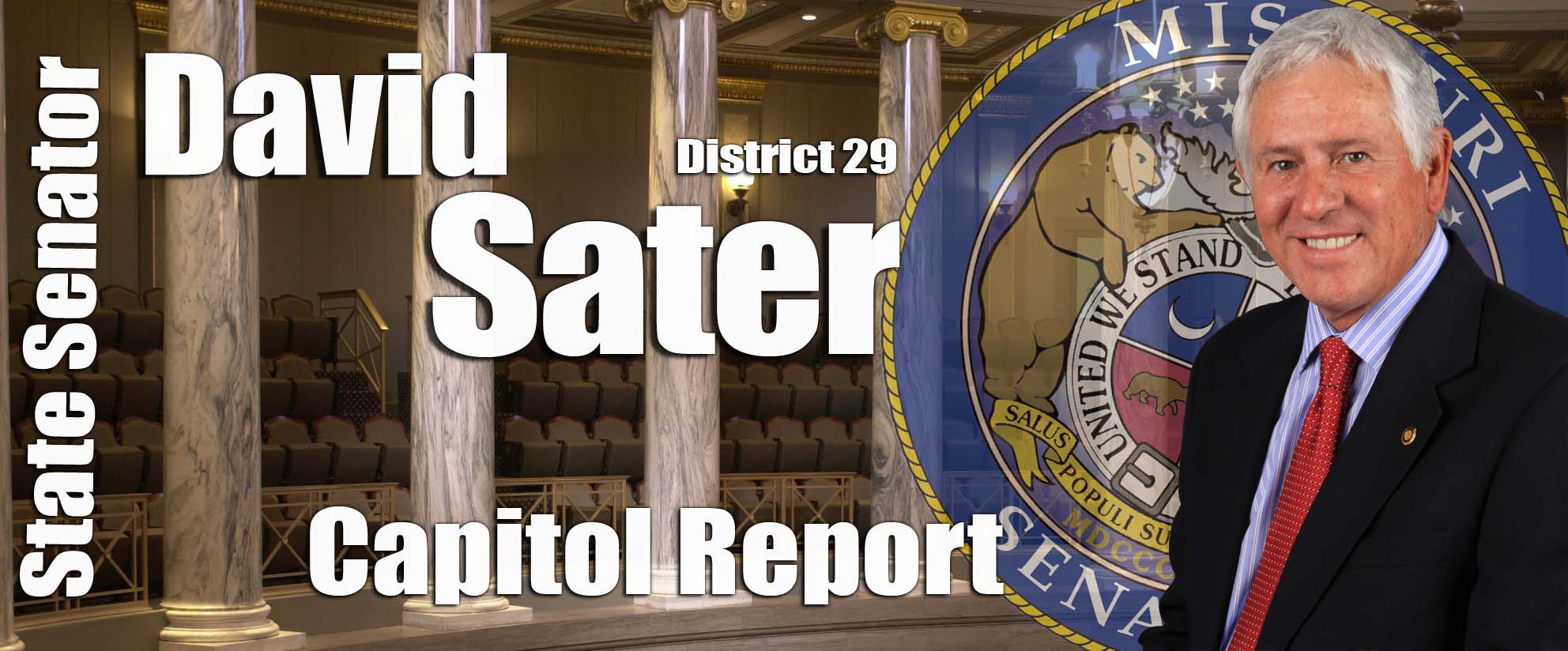JEFFERSON CITY — The past few weeks have been ones for the history books here in the Show-Me State. Torrential rains and record flooding have drenched our residents and wreaked havoc all across the state. Some areas saw as much as 12 inches of rain over the last week. Crews worked overtime making sure evacuations went smoothly. Emergency crews heroically handled rescues. Volunteers spent many hours filling sandbags and helping their neighbors. This should come as no surprise to folks in southwest Missouri. We help one another when disaster strikes and we get the job done. Watching our communities come together during this trying time and help others in need is inspiring and good reminder that we truly live in God’s country.
The record flash flooding and severe weather most of the state experienced was undoubtedly an emergency and the governor acted decisively, declaring a state of emergency and deploying the National Guard and other resources to affected areas. Our first responders, emergency management directors and departments, and our National Guard members should be commended for their dedication to saving life and property. They worked around the clock, put themselves in harm’s way to keep others safe, and represented what is best about our state.
As the flood waters begin to recede, we are left to cope with and clean up this mess. Homes and businesses were lost, roads were washed out, and bridges were destroyed. We won’t know the total cost of the damage for quite some time, but we do know the human cost is staggering. Many have lost their homes, many still cannot return to their homes, some are still without power and nearly everyone has a family or neighbor dealing with these issues. We have a long recovery ahead.
Even as the waters recede, it’s important to remember flood-susceptible areas might still contain water. Always be cautious when driving or walking in flooded areas. It only takes two feet of water to wash away your vehicle. Your best bet is to turn around if you see any water on your route rapidly rising. It’s always better to find another way to get where you are going. For more information on flooding concerns, visit http://www.modot.org/flooding/. MoDOT also has a 24-hour call line that contains information on road conditions: 1-888-275-6636. Outside of Missouri: 573-751-2551, as well as an interactive Traveler’s Map. Also, you can reach out to your local emergency management agencies if you are in need of assistance.
There are other resources available as well. FEMA’s Public Assistance (PA) Grant Program provides assistance to state and local governments, and certain types of private non-profit organizations, to help communities recover from major disasters or emergencies. FEMA’s Individual Assistance Program provides money or direct assistance to qualifying individuals, families and businesses in an area where losses are not covered by insurance. It is meant to help those who qualify with critical expenses that cannot be covered in other ways. The assistance, however, is not intended to restore damaged property to its condition before the disaster.
While some housing assistance funds are available through FEMA’s Individuals and Households Program, most disaster assistance from the federal government is in the form of loans administered by the Small Business Administration. Assistance programs may include: low-interest loans, Individual and Family Grant (IFG) Program, veterans benefits, and temporary housing assistance. To access FEMA’s information about federal government assistance after disasters, click here or visit www.sba.gov. Affected families and individuals can also contact their local chapter of the American Red Cross or the Salvation Army.
As always, I welcome your ideas, questions and concerns about Missouri government. You may contact me at the State Capitol as follows: (573) 751-1480, david.sater@senate.mo.gov or by writing to Sen. David Sater, Missouri State Capitol, Room 416, Jefferson City, MO 65101.

